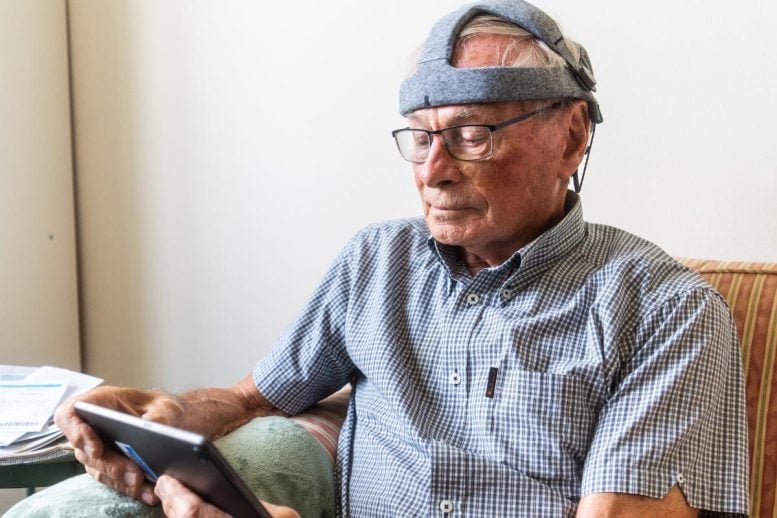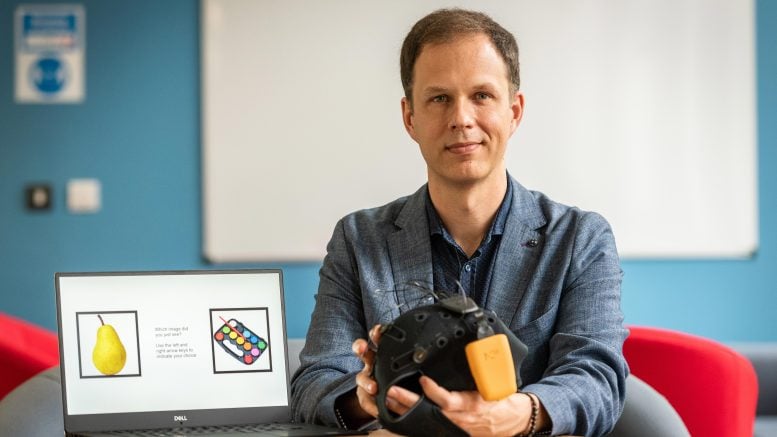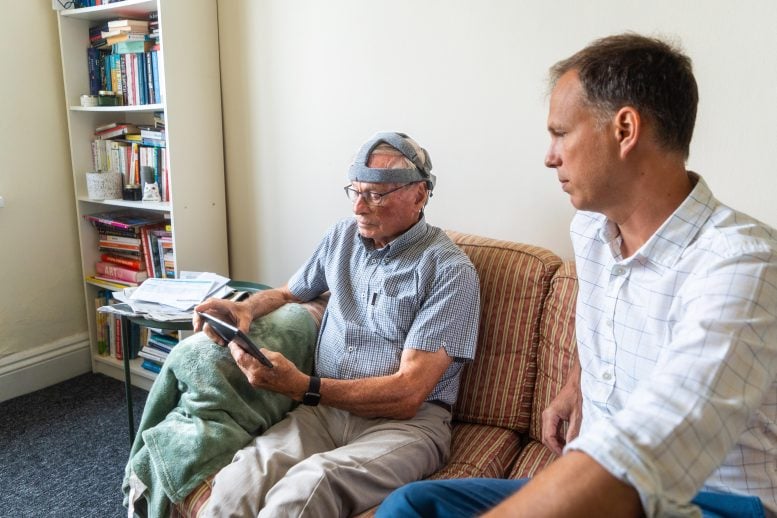Researchers from the College of Bathtub and the University of Bristol have, for the first time, successfully tested Fastball EEG technology in patients’ homes.
A noninvasive brainwave test created at the University of Bath has proven capable of detecting early signs of memory decline associated with Alzheimer’s disease long before conventional diagnosis is usually possible.
Details of the research, published in Brain Communications by scientists from the University of Bath and the University of Bristol, show that the Fastball EEG test can reliably spot memory difficulties in individuals with Mild Cognitive Impairment (MCI), a condition that often precedes Alzheimer’s. The test takes just three minutes, passively recording brain activity while participants view a rapid sequence of images. This work builds on a 2021 study in which the same team first showed the method’s sensitivity to memory impairment caused by Alzheimer’s.

Expanding access beyond clinics
For the first time, the researchers also demonstrated that the Fastball EEG can be carried out successfully in people’s homes, removing the need for a clinical setting. According to the team, this advancement paves the way for broader screening and ongoing monitoring with affordable, easy-to-use technology.
The development of Alzheimer’s drugs such as donanemab and lecanemab makes early detection even more critical, as these treatments are most effective during the disease’s initial stages. Yet in England, estimates suggest that around one in three people with dementia remain undiagnosed, which delays not only treatment but also access to support and research opportunities aimed at addressing the condition.
The study was led by Dr. George Stothart, a cognitive neuroscientist in the Department of Psychology at the University of Bath. He said:
“We’re missing the first 10 to 20 years of Alzheimer’s with current diagnostic tools. Fastball offers a way to change that – detecting memory decline far earlier and more objectively, using a quick and passive test.”

How the test works
Fastball is a passive EEG test that monitors the brain’s automatic responses to images – without requiring participants to follow instructions or recall information. This makes it more objective and accessible than traditional memory tests.
Researchers say Fastball could be scaled for use in GP surgeries, memory clinics, or at home – helping deliver earlier, more accurate diagnoses.
Dr. Stothart added, “There’s an urgent need for accurate, practical tools to diagnose Alzheimer’s at scale. Fastball is cheap, portable, and works in real-world settings.”

Chris Wiliams, CEO of BRACE Dementia Research, said: “Fastball is an incredible tool that could offer anyone who, for whatever reason, cannot access a dementia diagnosis in a clinical setting. BRACE has been supporting the development of Fastball for several years, and we are excited to see what Dr. Stothart’s team will achieve over the next few years with ongoing support from the charity.”
Reference: “A passive and objective measure of recognition memory in mild cognitive impairment using Fastball memory assessment” by George Stothart, Sophie Alderman, Oliver Hermann, Sam Creavin and Elizabeth J Coulthard, 1 September 2025, Brain Communications.
DOI: 10.1093/braincomms/fcaf279
The study was funded by the Academy of Medical Sciences and supported by dementia research charity BRACE.
Reference: “Lecanemab in Early Alzheimer’s Disease” by Christopher H. van Dyck, Chad J. Swanson, Paul Aisen, Randall J. Bateman, Christopher Chen, Michelle Gee, Michio Kanekiyo, David Li, Larisa Reyderman, Sharon Cohen, Lutz Froelich, Sadao Katayama, Marwan Sabbagh, Bruno Vellas, David Watson, Shobha Dhadda, Michael Irizarry, Lynn D. Kramer and Takeshi Iwatsubo, 4 January 2023, New England Journal of Medicine.
DOI: 10.1056/NEJMoa2212948
Never miss a breakthrough: Join the SciTechDaily newsletter.

